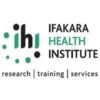Monitoring, Evaluation, Research, Learning and Adapting Officer at RTI International
Job Overview
Monitoring, Evaluation, Research, Learning and Adapting Officer
Position Summary
Act to End Neglected Tropical Diseases (NTDs) | East is a five-year project funded by the U.S. Agency for International Development (USAID) that supports national NTD control programs for the control and elimination of five targeted NTDs: lymphatic filariasis, onchocerciasis, schistosomiasis, soil-transmitted helminths, and trachoma. RTI International seeks a Monitoring, Evaluation Research, Learning and Adapting (MERLA) Officer who will support the Ministry of Health (MoH)’s national neglected tropical disease (NTD) control program to ensure quality data collection, analysis, and reporting in Tanzania under the Act to End NTDs | East Tanzania program. She/he will provide a first line review for the monitoring, evaluation, and reporting of program performance and results for Tanzania-led activities and assist in facilitating learning using those results. The MERLA Officer will work under the MERLA Advisor to conduct regular program data analysis, identifying areas for additional support., and identify how results will be used for program improvement through programmatic adaptation.
Location: Dar es Salaam
Essential Duties and Responsibilities:
MOH Support
- Support the design and implementation of a M&E plan in line with the National NTDCP framework.
- Support the process of report writing for program activities and timely dissemination as required by MoH and other partners.
- Participate in the planning of Mass Drug Administration (MDA) activities including the collection of data relevant for drug forecast.
- Participate in the planning and implementation of disease specific assessments (DSA) surveys, and surveillance activities.
- Under the direction of the MERLA Advisor, participate in strategic planning of the NTD program with partners at the central, regional, and district government levels, NGOs, FBOs, and CBOs ensuring that M&E components are made part of the overall strategic plan.
- Work with local partners to integrate NTDs into the mainstream health care delivery systems at district levels, aligning the NTD M&E components to the MoH’s MTUHA system.
- Liaise closely with Regional Health Management Teams (RHMTs), Council Health Management Teams (CHMT) as well as other relevant local partners for harmonized operations of M&E components in program activities.
- Facilitate the capacity building of national NTD team, partners at the regional, district and local levels to collect and analyze data and prepare reports for both the CHMT and the NTD program.
- Under the direction of the MERLA Advisor, coordinate implementation of MERLA activities
Data collection, monitoring, and reporting
- Supports MERLA activity tracking, including ensuring that activities are implemented in accordance with approved work plan and budget.
- Performs first line data reviews for specific program activities (e.g., surveys, MDAs, training) to ensure data accuracy and completeness.
- During routine and ongoing data review, communicates any problems with data quality to the Program Manager to ensure accurate data collection and reporting.
- Fills out routine project reporting tools and forms according to the program schedule (work planning, two semi-annual reporting periods, and additional as needed), collaborating with the Program Manager.
- Draft accurate and timely responses to ad hoc data requests.
- Supervise various field activities to support high quality data collection and reporting, identifying any challenges and providing on-the-spot solutions.
- Collaborate with MoH in the design of data collection forms and data management for the surveys and MDAs
Survey development, implementation, and analysis
- Assist developing protocols and reports for DSAs, data analysis to inform action-oriented conclusions, and the application of learning.
- Support the submission of survey outputs which include, but are not limited to, survey reports, raw survey data, and clean datasets.
- Support DSA outcome evaluations.
Program learning and adaptation through data use
- Review country-level work plans and semi-annual reports to ensure they appropriately incorporate the relevant data, including accurate and high-quality reporting and using data to inform strategy and activities.
- Analyze/use project MERLA data to identify trends/patterns/outliers (e.g., low-performing districts).
- Assist stakeholders to regularly input information into and use the national data storage platform, such as the
- Integrated NTD Database, including using it to submit high quality data to WHO (including Joint Application
- Package [JAP], and disease-specific elimination dossiers), etc.
- Provide technical assistance to MoH to facilitate high quality submission of JAP.
- Collaborate with country and HQ staff to identify opportunities for learning and program adaptation, including operationalizing learning agenda action items.
- Assist in coordinating and facilitating periodic pause and reflect activities, including but not limited to “After
- Action Reviews (AAR), post MDAs and DSAs, utilizing the Data for Action Guide, etc.
- Support capacity strengthening efforts to the MoH to conduct MERLA activities and institutionalize the approaches for said MERLA activities.
Minimum Required Education & Experience
- Bachelor’s degree in public health, epidemiology, biostatistics, or other analytics field (a must), plus 3 years of experience; or a master’s degree in public health plus 1 year of experience in global health/ governance/ nutrition/ environment programs (preferred).
Skills & Abilities:
- Ability to travel up to 50% of the time.
- Proficiency with Microsoft Excel.
- Knowledge of MERLA methods and approaches, as learned through coursework, internship, or work experience
- Experience managing electronic data capture (EDC) and working with real-time monitoring of data (preferred)
- Ability to work in a fast-paced environment and meet deadlines under pressure
- Capacity to prioritize and manage multiple tasks
- Strong organizational skills
- Detail-oriented
- High level of integrity
- Ability to communicate respectfully in a multi-cultural environment
- An understanding of development issues
- Fluent in English required





